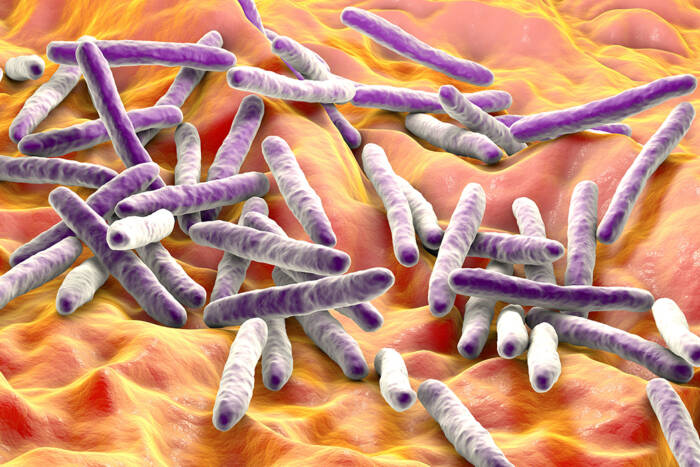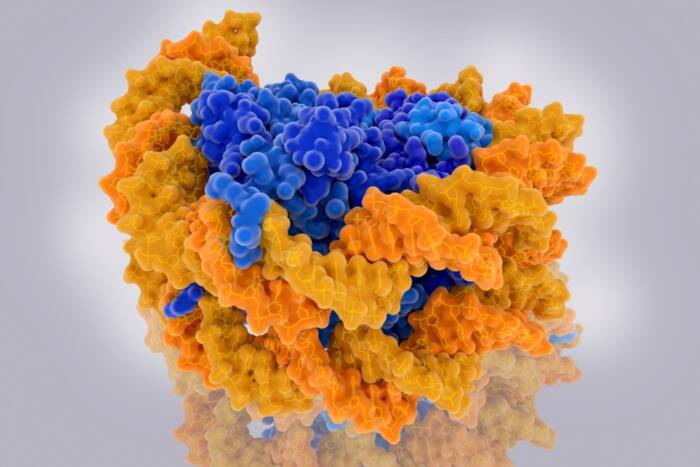University raises $29 million in new gifts
by ZACH VEILLEUX
New private gifts totaling over $29 million will allow the university to launch several new programs and will help provide flexible financial support during the current economic downturn. The gifts, ranging in size from $3 million to $10 million, are positive news for the university and come at a time when the markets continue to be volatile.
“With these gifts, we have now raised $55 million in the current fiscal year and a total of $537 million toward our $750 million goal in the Campaign for Collaborative Science,” says Marnie Imhoff, vice president for development. “Taken together, these gifts underscore the tremendous commitment our benefactors continue to make to the university even under difficult economic circumstances.”
“I’m grateful to our donors for their support and very pleased about the initiatives that these gifts make possible,” says Paul Nurse, the university’s president.
The new gifts are:
$5 million from the Simons Foundation. The Simons Foundation — the philanthropy founded by mathematician, hedge fund manager and Rockefeller University trustee Jim Simons and his wife, Marilyn — in November pledged $5 million to Rockefeller and the same amount to the Institute for Advanced Study in Princeton, New Jersey, to establish a joint program. Designed to foster collaboration among biologists, mathematicians, physicists and computer scientists exploring quantitative and theoretical approaches to biological problems, the program will support faculty members, fellows, visiting professors and a program of conferences, workshops and seminars to be shared between the two institutions. The first joint appointment, Rockefeller professor Stanislas Leibler, was announced in April (see “Simons gift to fund Institute for Advanced Study collaboration,” below).
$10 million from the Simons Foundation. In December Jim and Marilyn Simons pledged an additional $10 million to help the university through the current financial challenges, and subsequently suggested to Dr. Nurse that this gift be used to launch a new fund, called the Fund to Sustain Scientific Excellence at Rockefeller University. The Board of Trustees agreed to set a $50 million goal for the fund, to which Chairman of the Board Russ Carson has designated $10 million of his $25 million Campaign gift. The fund will allow the university to move ahead robustly with its scientific agenda despite the economic downturn and, in conjunction with cost-cutting measures, help sustain the university’s balance sheet during these difficult economic times.
$6 million to establish Presidential Fellowships in honor of John C. Whitehead. More than 135 friends and colleagues of John C. Whitehead, a member of the university’s Board since 1989, have contributed $6 million to endow several independent fellowships named in his honor. Mr. Whitehead himself made a generous commitment to the effort.
The Presidential Fellowships, which were originally proposed in the university’s 2005 strategic plan, expand campus wide a program originally begun in the Center for Studies in Physics and Biology. “The John C. Whitehead Presidential Fellows will not be confined to an individual lab but will determine their own research and collaborate across the campus,” says Dr. Nurse. “The idea is to recruit to campus the very best and brightest to tackle challenging questions in biomedical research.” The Whitehead Fellowships were announced at an event to honor Mr. Whitehead on April 2.
$5 million from the Heilbrunn family. Helaine Lerner and Joan Rechnitz, the two daughters of the late Robert and Harriet Heilbrunn, university benefactors for more than a decade, have committed $5 million to endow a new center for research nursing at The Rockefeller University Hospital. The gift, pledged in December, acknowledges both the hospital’s home as the birthplace of the field of clinical research nursing and its ongoing prominence in the profession today.
“Research nurses must focus on both patient care and conducting scientific research at the highest standard,” says Melissa Offenhartz, the hospital’s director of nursing and patient care services. “The Heilbrunn Family Center for Research Nursing will support training and provide much-needed resources for this important profession.”
Simons gift to fund Institute for Advanced Study collaboration
The Rockefeller University and the Institute for Advanced Study in Princeton, New Jersey, have established a joint initiative in biology supported by a $10 million gift from The Simons Foundation, a philanthropy established by mathematician and hedge fund manager Jim Simons, a Trustee of The Rockefeller University, and his wife Marilyn. The initiative, which builds on the complementary strengths of the institute and the university, will involve biologists, mathematicians, physicists and computer scientists exploring quantitative and theoretical approaches to biological problems.
To develop interactions and collaborations, the Institute for Advanced Study and Rockefeller will make joint appointments, including visiting professors and graduate and postdoctoral fellows, fund early stage high-risk projects and set up an annual joint conference as well as regular seminars, workshops and lectures.
“This unique initiative, which draws on the strength of both Rockefeller and the Institute for Advanced Study, will open new doors to studying complex biological problems,” says Paul Nurse, Rockefeller University’s president. “By combining techniques from several different scientific disciplines, the effort will be well positioned to make breakthroughs in how we understand key processes of life and disease.”
Rockefeller University’s Stanislas Leibler, head of the Laboratory of Living Matter at Rockefeller, has been appointed to a joint professorship as part of this initiative. Leibler is interested in the quantitative description of biological systems, both on cellular and population levels. He held academic appointments at the Centre d’Études de Saclay, in France, and Princeton University before joining Rockefeller University in 2001 as Gladys T. Perkin Professor. In 2003, he was appointed one of the first Tri-Institutional professors at Rockefeller, Weill Cornell Medical College and the Sloan-Kettering Institute. He also is a member of the university’s Center for Studies in Physics and Biology, which promotes experimental collaborations to study both the physical properties of biological systems and the application of physical techniques to the modeling of biological networks.
A series of annual conferences will be established as part of this initiative, to be named in honor of Joshua Lederberg, a Nobel laureate in physiology or medicine and Rockefeller’s president from 1978 to 1990, and mathematician John von Neumann, a faculty member at the Institute for Advanced Study from 1933 to 1957. Drs. Lederberg’s and von Neumann’s work on artificial intelligence, expert systems, self-reproduction and computational aspects of biological systems will serve as a model for this initiative to explore quantitative and theoretical approaches in biology.


